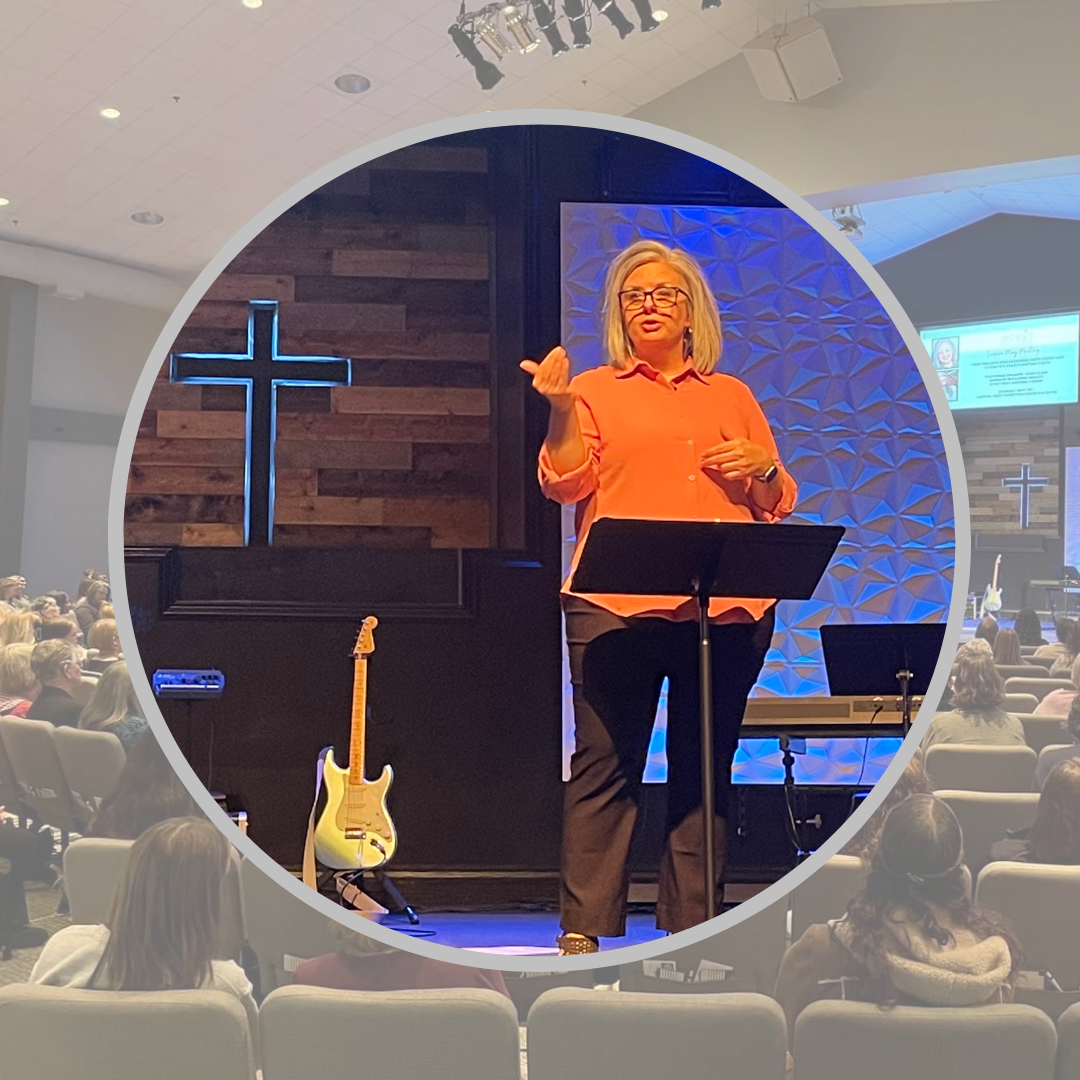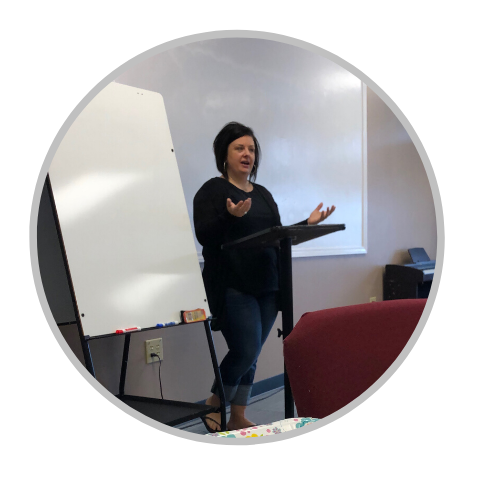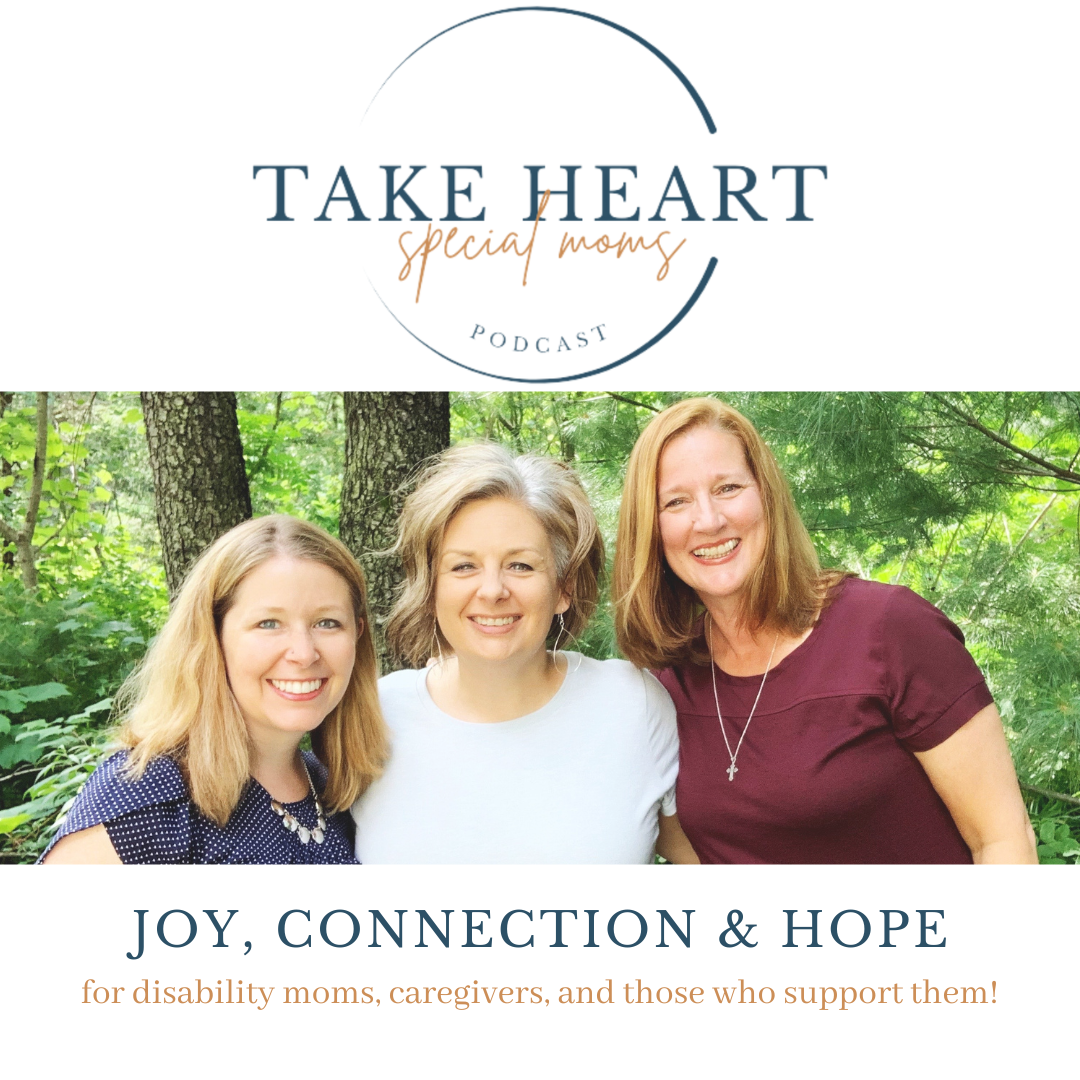Speaking
I love to help encourage and equip anyone who cares for those with disabilities, medically complex and special needs.
I also love speaking to groups of all sizes, using my life story, from humor to tears, to affirm, encourage, and move women from desolation to hope.


Parents & Caregivers
Disability or special needs parents are called to be many things – moms, dads, caregivers, nurses, doctors, paras, therapists, friends, and much more! Trying to wear all of these hats can be simply overwhelming. My passion is to help parents with practical, easy, and inexpensive (if not free) caregiver support systems in order to create margin in their lives to focus on what truly matters. The diagnosis does not have to define your life. My goal is to help you navigate that concept in sustainable ways. Below are some specific breakout sessions or shorter keynote addresses.
Setting Up Your Own Caregiver Support System
Disability and special needs moms are often searching for supports that don’t exist. The daily grind of medicines, therapies, doctors appointments, treatments, and IEP meetings (not to mention making sure they’re bathed and fed) doesn’t leave much time for anything else – including keeping track of all of it. In this workshop, I walk you through specific ways to organize all of the paperwork and information that comes with being a caregiver. Resources will be provided. There will be a discussion at the end of each session so participants can ask specific questions.
Navigating the Messy Caregiver Emotions
Feelings are fierce and frequent when raising a child with disabilities, complex medical, or special needs. The feelings we experience are real and become a useful tool when we know how to name them, embrace them, and leverage them to find a place of joy and hope. In this workshop, we’ll name some of the overwhelming feelings we encounter – guilt, jealousy, and fear, just to name a few. Participants will be given practical tools on how to use the overwhelming feelings that accompany us on this journey to reach a destination of acceptance.
Sara will also share how her and her cohosts’ book, “The Other Side of Special: Navigating the Messy, Emotional, Joy-Filled Life of a Special Needs Mom” came to be and why it is so important to maintain a healthy relationship with your family, yourself, and God.
The A.B.C’s of Surviving Disability Parenting
Sara will discuss three important concepts: Accepting the diagnosis, Being in the moment, and Caring for ourselves is important to surviving this journey of raising a child with disabilities, complex medical, or special needs. It’s easier said than done, though. In this workshop, the participants will receive practical and sustainable ways to focus on these three fundamental concepts and why that focus will benefit the child, the family, practitioners, educators, and their own self care!
Advocacy for the Disability Parent: Everyday Ways to Advocate for Your Child in Everyday Situations
When you hear advocate, it can feel daunting. How do everyday people advocate for their children? Advocacy is found in everyday moments. In this workshop, participants will be given a list of resources and ideas on how they can advocate for their child with disabilities or special needs in every day situations be it at school, family functions, church, or even the grocery store. One of the most productive moments of our time together will be a discussion where we can learn how to help our children self-advocate.
Inclusion, Not Entitlement: Raising Your Child to Thrive, Not Just Survive
We as parents and caregivers often spend so much time focusing on ensuring our children are included that we inadvertently nurture an environment of entitlement. Ensuring that our children are included and treated like their peers also involves helping them set realistic goals, holding them accountable for their actions, and helping them embrace their uniqueness. In this workshop, we’ll walk through realistic and practical ways you can advocate for inclusion without raising entitled children.
Strengthening the Marriage Muscle: 5 Ways to Build and Maintain a Strong Marriage That Sustains the Trials of Caregiving
Let’s be real. Parenting children with disabilities, medically complex, or special needs is hard. Society and statistics will tell us that parenting children with special needs is especially difficult on a marriage. Between the stress, exhaustion, and financial toll, our marriages can get left behind or forgotten altogether. Taking time for each other isn’t selfish, it’s crucial to fortifying your family. My husband and I have come up with 5 ways we make sure we check in with each other and exercise our marriage muscle. We/I* will walk you through each of these 5 methods from each of our points of view. (Note: This session can be lead by my husband and/or me.)
Sibling Support: Helping Your Able-bodied and/or Neurotypical Children Feel Seen and Heard
One thing parents of children with disabilities or special needs don’t have a lot of is excess time. Fortunately, our children want quality over quantity. How do we focus on quality time when we are often on a tight time budget? How do we focus on quality time when any “spare” moment is filled with to-do lists, traveling, or setting up camp in hospitals or doctors’ offices? We use the resources around us; that’s how! In this workshop, we’ll discuss everyday ways to make sure ALL your children feel seen and heard. Participants will be encouraged to share some of their favorite ways they support the siblings of their child with special needs.


Special needs ministry & the church
Present over perfect: Ways that the church can show up for special needs families now without blowing their budget
Starting a special needs ministry doesn’t have to break the budget. In this breakout, I will walk you through some big ideas (with a small budget) that will impact your church and community in profound ways.
Elders, staff, and leadership: Five key ways you can show up for special needs families by using your greatest resource- YOU!
Churches often don’t start special needs ministries because they feel ill-equipped. But what they often overlook as their biggest resource is themselves. In this breakout, I will give you 5 key ways you can advocate and be present for your special needs families by simply being yourself.
Ways to Start and Grow a Disability Ministry
There is no reason to recreate the wheel when it comes to starting a disability ministry at your church. In this breakout, we will discuss ways you can start and grow a disability ministry (no matter your budget)!
Your Church Needs Members AND Volunteers With Disabilities; Here's Why!
Learn new and surprising ways your disability outreach can help your church flourish both within the walls of the church and the community!
We will also discuss practical ways your members with disabilities or special needs can serve the church. Jesus wants ALL of his children to grow the church. Are you utilizing those in your congregation with disabilities or special needs? If not, you are missing a vital way to level up your outreach within your community!
Education
There is often a disconnect between disability parents, guardians, or caregivers and educators.
Parents, students, and educators all have specific responsibilities to help the child thrive. When we all work together, magic happens. I love talking to both educators and parents about how they can communicate in a more positive and productive manner to better serve the child.

For Parents and Guardians
10 Things Your Child’s IEP Team Needs to Know About Your Child
You are your child’s most valuable resource, especially when it comes to their education. You know your child best. You know what makes them amazing and you know what areas they need help with. In this workshop, I’ll provide handouts and resources that will help you work with – not against – your child’s IEP team. We’ll discuss ways you can help your child’s educational team help your child.
Goal Setting For All Stages of Your Child’s Educational Career
As your child gets older and changes, so does her/his/their educational goals. However, the goals need to be YOUR child’s goals – goals that will help them thrive in the educational environment.
We will discuss ways you can help your child’s educational team set practical goals, specific to what your child needs to flourish.
Involvement: Why and How to Get Your Child Involved in Extracurricular Activities
The beauty of this ever-evolving society is that inclusion and acceptance are being advocated and encouraged on a whole new level. Extracurricular activities aren’t just for the brainiacs and the athletes anymore. In this session, we’ll discuss why it’s important for your child to be involved with their peers and realistic ways to get them involved. Participants will be encouraged to share their experiences – both successes and struggles.
Advocating Your Child’s Needs in a Courteous Yet Assertive Manner
It’s inevitable that we’ll disagree with our child’s educational team at some point. We won’t see eye to eye and a discussion will need to follow. How do we do that when we hate conflict or without alienating the ones caring for and educating our child? In this session, I will provide some personal experiences and how I managed to advocate for my child confidently and graciously. Participants will be encouraged to share their experiences and together we’ll discuss ways to move forward and how to prepare for those times when we know we’ll be triggered into reacting aggressively.
For Educators
Beyond the IEP: Ways to support the child in (and out) of school
You love your children and you want to see them thrive. How do you do that when you only get them for a few hours every day? How do you support the child in and out of the classroom? It’s time to think beyond the IEP. In this session, I share ways you can claim a seat as a child’s biggest advocate and gaining the parent’s trust. Using my experience through 3 schools and 3 IEP teams, I’ll share ways you can up-level your next IEP meeting.
5 main ways to positively communicate with special needs parents
I’ll say it; parents of special needs parents can be, well, intense. Right? In this session, participants will be given 5 ways they can communicate with special needs parents in a positive, assertive, and productive way. We will discuss how you can ensure your child’s parents know that you are on the same team – that you are in the child’s corner. Participants will be encouraged to share their personal stories or situations and we’ll work together to come up with effective and productive solutions.
3 reasons why parents may not be involved in the IEP meetings and ways to change that
In an ideal world, each one of your children’s parents would be involved. That is and never will be our reality. I guarantee though that you have some parents who want to be involved but aren’t because of miscommunication, a lack of knowledge, or simply a lack of time. In this workshop, we’ll discuss ways to reach those parents who want to be involved but aren’t. This session isn’t about a major fix or how to reach everyone. We’re talking about a select few. As a caring educator though, your passion is to reach one more child. Maybe this is your chance to see if and how that’s possible.
Empowering ALL students to be advocates for their peers with special needs through everyday teaching techniques
Teaching compassion starts early. It’s never too late though. As a parent of a child with complex medical and special needs, I have seen how one of my son’s peers can make or break a class. We have experienced more students wanting to help than we have of students feeling the need to bully. In this session, I will walk through ways we have worked with educators to help them empower their students to be advocates for those with special needs. Education is key. We all have heard and we all believe that sentiment. It holds true for advocacy in the classroom as well!
join
Work With Me


